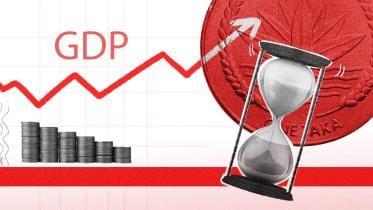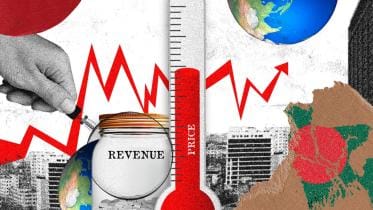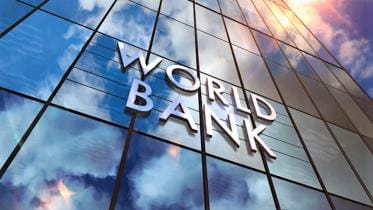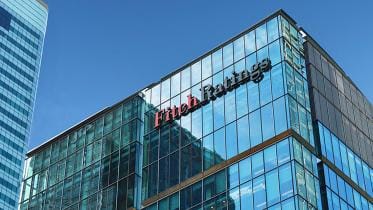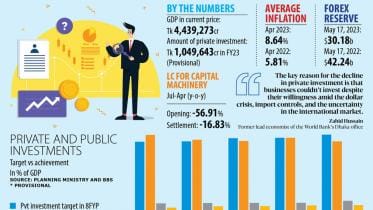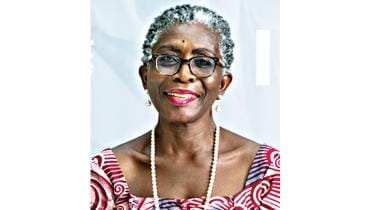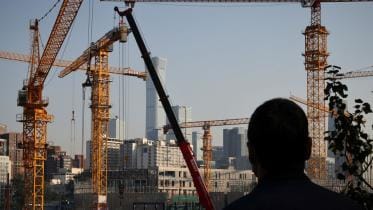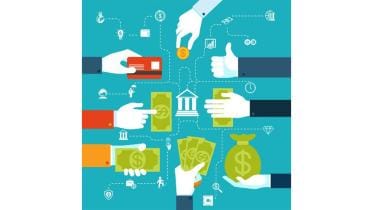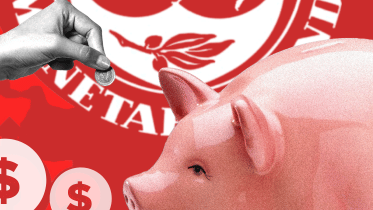GDP
Economy slows to 1.81% in volatile first quarter
The Bangladesh economy saw its lowest quarterly growth in three-and-a-half years in the first quarter of the fiscal year on the back of political upheaval and severe flood in August.
6 January 2025, 18:10 PM
BNP to allocate 5% of GDP each for health and education if elected
"We have made two clear decisions: we will allocate 5 percent of GDP to health and 5 percent to education. This is our commitment," Chowdhury said.
11 November 2024, 08:07 AM
Economy grows by 3.78% in Oct-Dec, slowest in three quarters
The Bangladesh Bureau of Statistics says in quarterly GDP estimate
9 April 2024, 15:46 PM
Bancassurance: a win-win solution for Bangladesh
With a gross domestic product growth rate of nearly 5.8 percent in 2023, Bangladesh is one of the fastest-growing economies in the world. Driving Bangladesh’s prospects is our extremely active domestic consumer market, which accounts for nearly 70 percent of GDP and is rapidly expanding on the back of a growing middle and affluent class. Fuelling this growth is a digital economy that is also expanding rapidly.
19 March 2024, 00:36 AM
Bangladesh’s economic growth to slow to 5.6% in FY24: World Bank
The World Bank has forecasted a slow economic growth for Bangladesh because of factors like inflation
10 January 2024, 09:01 AM
The growing importance of Bangladesh in the Indo-Pacific
In its foreign policy and international relations, the country has always advanced a free and open Indo-Pacific.
21 November 2023, 02:10 AM
Govt’s borrowing goes up amid falling revenue
The government’s dependence on borrowing to finance national budgets has increased over the past decade as revenue collection has failed to keep pace with the ballooning public expenditure.
25 June 2023, 02:00 AM
High time to reduce demand, tackle inflation head-on
The government should target reducing demand through ensuring market-based interest and exchange rates as well as cutting allocation for infrastructure projects to rein in inflation and protect the foreign currency reserves, said economists yesterday.
13 June 2023, 01:20 AM
Bangladesh’s revenue-GDP ratio way lower than peers
Bangladesh’s revenue-GDP ratio is a third of the median seen in the countries that have the same credit rating, highlighting the country’s weak capacity to finance development and support growth, according to American credit ratings agency Fitch Ratings.
8 June 2023, 01:20 AM
Public expenditure stays at lower level
Bangladesh’s public expenditure is not growing in keeping pace with the steadily expanding economy as it struggles to raise adequate revenues, thus failing to ensure full implementation of development programmes and provide expected services to its citizens.
22 May 2023, 02:00 AM
Private investment falls for second time in 3 years
The private investment-to-GDP ratio in Bangladesh declined in the current fiscal year owing to a lower confidence among investors amid the persisting dollar crisis and global uncertainty, higher inflation and a fall in demand for goods in international markets.
21 May 2023, 02:00 AM
GDP to expand by 6.03% this fiscal year
Bangladesh's economy would grow by 6.03 per cent in the current fiscal year of 2022-23, according to the provisional projection of the Bangladesh Bureau of Statistics (BBS).
11 May 2023, 09:55 AM
Young entrepreneurs in agriculture: The new driving force
Agriculture accounts for approximately 13.6 per cent of Bangladesh’s GDP and employs more than 40.6 per cent of the labour force. As technology advances, so do agricultural applications, ushering in a new era of industrial upheaval.
12 February 2023, 18:00 PM
What’s in store for our agricultural production potentials?
Both the government and private sector should come forward and encourage climate-smart agriculture as well as the production of non-local crops, which have immense possibilities. It would not only increase the productivity of our agriculture sector, but also maintain self-sufficiency and ensure food security in Bangladesh.
29 January 2023, 18:00 PM
IMF Loan Programme: Getting Bangladesh ready for LDC graduation
The prospective loan programme of the International Monetary Fund will prime Bangladesh for graduation from the least-developed country bracket and reach middle-income country status by 2031, said the lender’s top official.
18 January 2023, 01:40 AM
‘Unpredictability has become the new normal’
Unpredictability has become the new normal in a world afflicted by the forces of deglobalisation amidst rising geopolitical tensions.
5 January 2023, 17:00 PM
Can China Save Its Economic Miracle?
To improve medium-term growth, China must heed the lessons of its own history and focus on removing barriers to market entry and entrepreneurship. An economy’s growth rate comes from a combination of an increase in the average size of existing firms (intensive-margin growth) and an increase in the number of firms (extensive-margin growth). A study of the Chinese manufacturing sector that I co-authored with Xiaobo Zhang suggests that during the last few decades, extensive-margin growth accounted for about 70 percent of overall GDP expansion.
5 January 2023, 11:20 AM
Remittance outflow crosses $100m -- thru legal channel
Outward remittances from Bangladesh through legal channels crossed the $100-million mark for the first time in 2021 as more foreigners are working in the fast-growing economy, data from a global organisation showed.
26 December 2022, 02:30 AM
Illnesses caused by air polution: The Invisible Killer
Air pollution is killing around 80,000 people every year in Bangladesh by causing respiratory problems as well as depression, and wiping out around 4 percent of the country’s GDP, said a World Bank report yesterday.
5 December 2022, 01:00 AM
What the IMF said, our economists have said before
What Bangladeshi economists have been saying for a long time is pretty much what the International Monetary Fund (IMF) has told our central bank and the government.
3 November 2022, 16:30 PM



